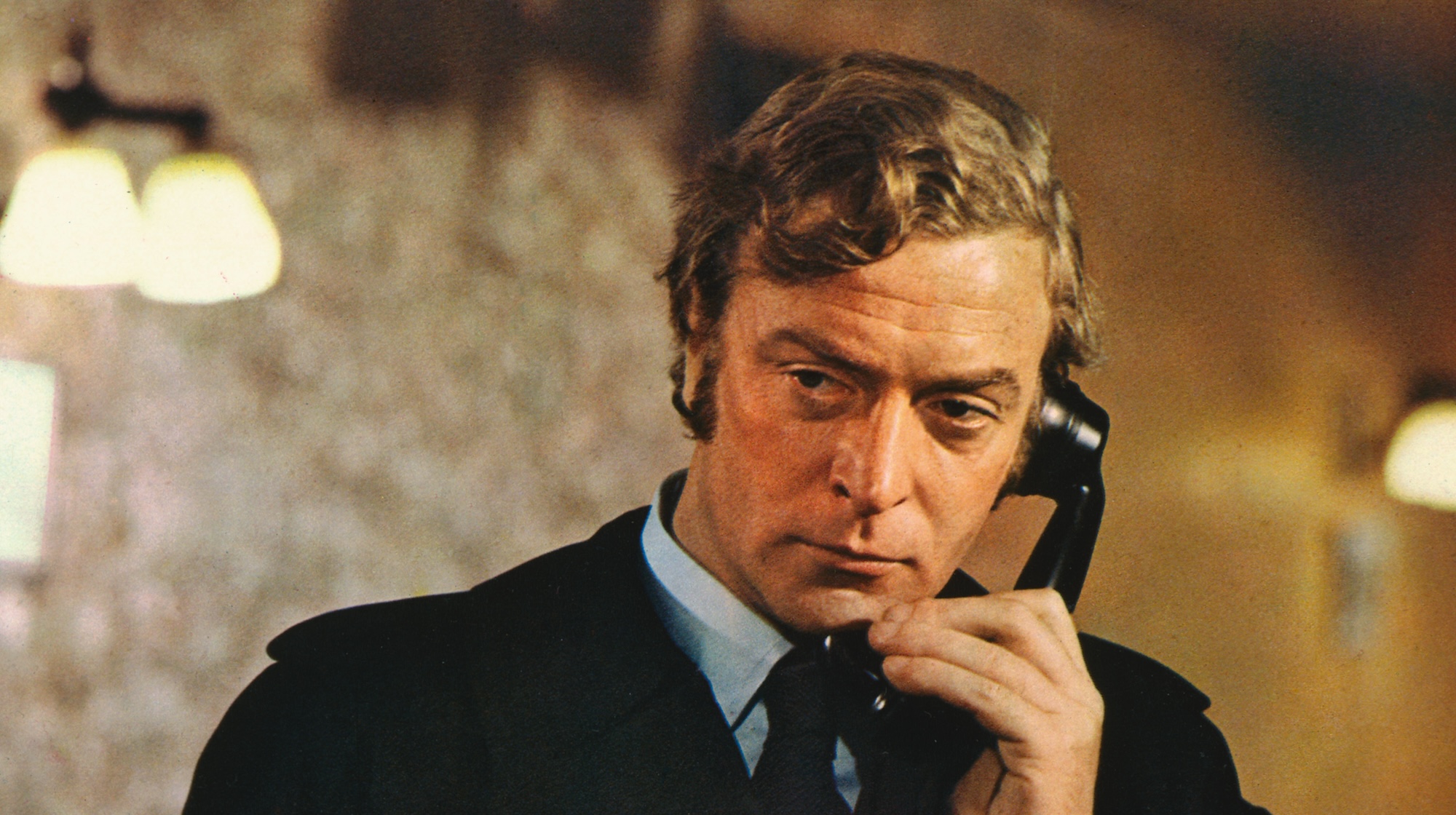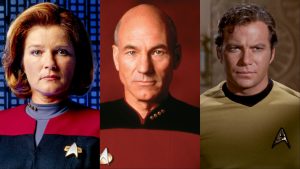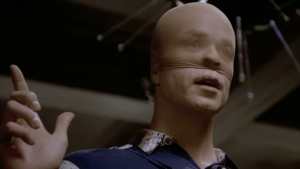
Put on any action movie made between 1903’s The Great Train Robbery and 2017’s John Wick, pay attention to the risks playing out before you, and you’ll never stop asking why the hell aren’t stunt performers lauded for their efforts by the Academy Awards. In the 1970s, one of the greatest and most underrated decades for action movies, you could still see every danger to life and limb on screen. CGI wasn’t around yet, and the law was barely paying attention.
The result is an era where bloody martial arts imports and Blaxploitation commentary blended with tight-wire action and terrifyingly real stunts. The very best remain iconic, from the Dirty Harrys to 1979’s global phenomenon, Mad Max. But with the passage of time comes forgetting, and the ‘70s hide some of the best, wildest, and sometimes even edgiest movies waiting for fans to rediscover.
Get Carter (1971)
Once upon a time, Michael Caine was the coolest cat you could hope to get in your action movie, and remakes of his classics almost always suck. The top shelf example is 1969’s The Italian Job, which was remade as a movie Edward Norton visibly didn’t want to be in. But lesser known, and more insultingly rebooted, is 1971’s Get Carter. It’s the coldest rendition of London bad boy violence short of A Clockwork Orange, and the fact that Sylvester Stallone tried to match prime era Michael Caine is one of Satan’s little jokes. I don’t care that Caine had a cameo. The remake is a crime.
Get Carter is a revenge movie twice over; the first sets off the film as he returns to avenge his dead brother, the second is when he realizes his niece—or possibly his daughter—has been forced into porn. Already a chillingly violent portrayal of one pissed off gangster, Jack Carter (Caine) goes full Sin City on everyone involved in Doreen’s abuse. There’s no happy ending on the horizon for Carter, but it’s clear he didn’t want one anyway.
Vanishing Point (1971)
Thelma & Louise has an unusual grindhouse predecessor in 1971’s Vanishing Point. It’s a movie stuck somewhere between existential and nihilistic, with its exquisitely unheroic protagonist (Barry Newman) experiencing a strange, full life during the movie’s full-tilt hour and a half, leaving him a free spirit in its last moments. It’s not a downer, it’s an ascension. Maybe.
On its surface, Newman’s Kowalski is just a tired war vet and ex-cop (affectionate, for once) trying to deliver a cool car cross-country. But Kowalski is a speed demon by way of both pedal and pills, and the cops start hounding him. He gets an assist in avoiding them from his own voice from the heavens, a DJ named Super Soul (Cleavon Little, and you should know the man is more than Blazing Saddles). But it’s not enough to keep him safe the whole way through. What we have here is a tightly wound film, and one Baby Driver fans should check out.
Trouble Man (1972)
1972’s Trouble Man is more than a Marvin Gaye soundtrack that still bangs so hard that Sam Wilson recommended it to Steve Rogers in order to help him catch up with the times. It’s also an imperfect highlight of both the private eye thriller and Blaxploitation genres. Sometimes all the world needs is one cool cat to “fix” its issues. Or at least make them worse in awesome ways.
Robert Hooks is one of the still-living grand architects behind Black excellence in cinema (go look up the NEC and be awed), and here he plays an LA fixer pulled into an alley-crime conflict between the runners of the local dice game and their crime lord nemesis. A day in the life goes to hell when the fixer (he’s called Mr. T but don’t fixate on that) gets fingered for the death of a bigwig kingpin, putting him in the police’s crosshairs. It’s not going to be the best film you’ve ever seen. But something about it lingers, and you’re gonna want that soundtrack around the house after.
The Way of the Dragon (1972)
In my experience, a lot of fledgling action fans chuck Enter the Dragon into their to-watch pile and figure that’s a good enough overview of Bruce Lee’s work. It’s not. Released and renamed Return of the Dragon here after Enter became a hit, The Way of the Dragon shows a funnier but equally competent side of Lee. And no, it’s not a sequel, prequel, or anything-quel. It does, however, have a nascent Chuck Norris to gawk at and go ‘good god, is that smooth-faced, bowl-haired, child-man actually Chuck Norris?’
Not only is that the Texas Ranger, but for a few amazing shots, that’s him and Lee facing off in the real Roman Colosseum (and in defiance of the Italian law). To get there involves a complicated, slapstick plot about a family of Chinese restaurateurs in Rome versus local crime lords. Tang, played by Lee, starts off as a goofy fish out of water in one of Europe’s oldest cities, and the final result is a banger flick. If you don’t cheer at least once during the final showdown, you’re a shell of a person.
Cleopatra Jones (1973)
Pam Grier and her 1973 blockbuster ride Coffy might be the apex of the ‘70s lady-led Blaxploitation era, but Cleopatra Jones, featuring Tamara Dobson, is no slouch either. This is the movie at the core of Lashana Lynch’s performance in No Time to Die. This is a story about the baddest ma’am in the USA’s arsenal, a woman who’s just torn apart some white lady’s opium farm in Turkey only to find out this chick is now her personal nemesis.
Mommy (Shelley Winters) would fit right in with the Real Housewives crew. She’s the apex of today’s misaimed concept of “girlbossing,” a fancy-livin’ mean-spirited drug queen whose pet boytoy also runs the revolving door at an LA addiction recovery center for her. If there were any justice in the world, Cleopatra would’ve ridden again in the ’80s or ‘90s, to tell the president to their face that she was personally and literally going to rip ass at the CIA for what they did to her community.
White Lightning (1973)
You are doing yourself and Sterling Archer a disservice by not watching 1973’s White Lightning, Gator’s somehow now lesser-known predecessor. Archer prefers the sequel, also led by Burt Reynolds in his prime, but he’s been wrong about a lot of things, and he’s wrong here too.
In a nutshell, White Lightning is functionally about why NASCAR exists: moonshiners need to move their product without drawing the attention of the cops. That requires cars that look generic but have a lot going on under the hood, hence stock cars. Gator (Burt Reynolds) is already in prison for running ‘shine. He’s urged undercover by the Feds to nail a corrupt sheriff, complete with an excellent car guy contact once he’s out. But Gator wants the sheriff for his own vengeful reasons, and once he’s free, he exists by the law of the Ghost of Dale Earnhardt. No cops at Pride, and no cops at the moonshine rally either.
The Long Goodbye (1973)
Raymond Chandler is a big name in crime noir, and The Long Goodbye is… not exactly an accurate adaptation of his best novel about hardboiled gumshoe Phillip Marlowe. Marlowe was previously portrayed by none other than Humphrey Bogart. To fill in for that trenchcoat, director Robert Altman chose the sardonic wunderkind Elliott Gould, who starred in his previous film, M*A*S*H*. An idiosyncratic choice? Not to be believed. Gould steers the whole demolition derby that is this movie right into the noir genre, which somehow survived this attack with the same artless grace as the actual theme of Fight Club.
Gould’s Marlowe is kind of a dipstick, a paranoid goon who cares about his cat, his wounded buddy, and not much else. Unfortunately, both Marlowe and the cat go through it before the movie is done, and along the way, keep an eye out for a very early bird cameo by former California Governor Arnold Schwarzenegger. The Long Goodbye is a movie for fans a little tired of certain Hard Guy noir tropes, and for those looking for a little more of that Kiss Kiss, Bang Bang flavor.
Gone in 60 Seconds (1974)
I actually like the corny remake with Nic Cage and Angelina Jolie, but that says more about my bad taste than that movie. The 1974 original is probably what George Miller sees in his dreams: a fully independent movie created, directed, written, starring, and featuring stunts by H.B. Halicki, an actual madman who died in 1989 as he lived, preparing stunts for the sadly incomplete sequel.
Forty-eight cars need to be chopshopped for a criminal buyer. To pull it off, master car thief (and oddly persnickety insurance agent) Page preps the infamous list of ladylike codenames, each of which is an extremely rad piece of machinery. The list ranges from a slew of Rolls-Royces to a Lambo Miura, a car so beautiful as to be nearly sapphic. Yet it’s Eleanor that foxes Pace and leads to cinema’s longest car chase scene to date, a gorgeous Ford Mustang that goes through four iterations before Pace can call his work done. It doesn’t matter if you’re not a Car Person. You’ll like these cars.
Captain Kronos: Vampire Hunter (1974)
Hammer Horror gave us more than Dracula movies, although to be fair, a lot of them still have vampires. On that list is 1974’s Captain Kronos, a movie that combines literal swashbuckling action with the noble but not exactly financially viable career of vampire hunting. The result is a wild, campy flick that I swear author Hideyuki Kikuchi was possessed by when he came up with Vampire Hunter D a decade later. Kronos (played by German actor Horst Janson, dubbed into English by Julian Holloway) even has a katana and a disowned vampire family to prove it.
Kronos is an old friend of a small town doctor, urgently called to visit when the doc has suspicions about the new, life-sucking illness going around. The doc’s hunch is right, but the problem is that not all vampires go down the same way, which is a nice twist on tradition. The result is silly, sexy, and one of the best cornball flicks you’ve never heard of.
The Towering Inferno (1974)
Irwin Allen has a smaller portfolio of work than Roger Corman, but like that maestro, Allen left a definitive landmark on cinema: he was the high king of the disaster movie. The Towering Inferno is one of his masterpieces as producer, and he personally directed its biggest action sequences. It’s Die Hard if the building itself held the spirit of Alan Rickman. More properly, it’s a compelling argument for why building safety codes are so important.
The movie is exactly what it says on the tin: during this swank new skyscraper’s grand opening, every cut corner and cheapie construction material comes to fiery roost right upon its makers’ heads—and on all the high society guests in attendance too. The architect (Paul Newman) got stuck with the skinflint developer’s son in law, Roger (Richard Chamberlain), and an object lesson in why nepotism is bad results in a lot of crispy critters falling down elevator shafts. Don’t get too attached to anyone, and put some extra butter on the popcorn for this maliciously fun ride.
The Taking of Pelham One Two Three (1974)
Take Speed with Keanu Reeves and put it in a grinder with the Liam Neeson B-movie Non-Stop. Now go back in time to 1974, put in Robert Shaw (Jaws) and Walter Matthau (yeah, the guy in Grumpy Old Men), and baby, you got one hell of a heist movie cooking. There’s also not a little Die Hard in the mix here, as the crew holding this NYC train hostage are fairly polite in between their moments of relentless terror… except for Mr. Gray (Hector Elizondo), who’s intent on being a dick the whole time.
It’s not a great day to be a transit cop, and Matthau as our hero, Lt. Gerber, epitomizes that with a solid deadpan flair that still feels minty fresh. With Shaw as his nemesis, the two spend the movie outthinking each other while rarely ever being in the same shot. It’s a movie that genuinely stands the test of time while somehow having been left behind by zippier modern fare.
Rollerball (1975)
1975’s Rollerball is the movie you notice on Tubi a few blocks over from Death Race 2000, with a picture of what appears to be Godfather star James Caan in a football helmet with a metal-studded fist, and think “that looks rad” but then forget about because Death Race is a trip. Scroll back. It’s directed by Norman Jewison, one of the finest directors to never win a Best Director statuette, and it’s The Running Man with a hell of a lot more to say about the endgame of individuality vs. capitalism.
Not that it’s some dull diatribe about the topic; James Caan rarely ever gave a boring performance. He was best in roles that let him be explosive, quietly or otherwise, and as a Rollerball champ who’s become too popular, he’s here to help his team literally murder the other guys on an incredibly unsafe-looking track. If you think this is some Battle Angel Alita-level stuff, you’re not wrong. I will go to my grave swearing this movie inspired the Alita spinoff manga, Ashen Victor.
Rolling Thunder (1977)
Rolling Thunder is a loaded title; yeah, it’s an atmospheric effect in a storm, but it’s also the name of a relentlessly violent, years-long bombing campaign by the U.S. that accompanied the ground war in Vietnam. Residual ordinance still does damage today. That’s the bleak metaphor within the 1977 film, which depicts a Vietnam vet (and Hanoi POW) cracking under horrifying pressure five years before John Rambo had a bad day.
Rane (William Devane) is already on a rough ride adjusting to civ life when four violent crooks ruin everything he’s got left. With his family gone, his body mutilated, and his PTSD triggered to the point of sociopathy, Rane can’t even confide in his only buddy, Johnny (Tommy Lee Jones), about what actually happened until he’s ready for the final shootout. Bleak and shocking, there’s no cute sequels where Rane goes back to Vietnam with a cool red headband, a bow, and a thirst for vengeance. There’s only the cold comfort of surviving with everything you’ve lost still gone.
Sorcerer (1977)
Do you have opinions about the underlying themes of corruption and death that surround oil companies? Have you heard about company towns? Would you like to learn? William Friedkin’s (yeah, the guy that did The Exorcist) 1977 film Sorcerer is about the above. Four no-luck no-money crooks take on a job for an American oil company that they can’t refuse: move two trucks loaded with dangerously unstable nitrogen across deadly South American jungle so they can be used to put out an oil well fire in their company town. Complete the job and survive, and they’ll each earn more than enough money to buy new lives somewhere other than this sweaty shithole.
Sorcerer is the name of one of the customized cargo trucks, and it’s at the heart of the film’s central, eternally butt-puckering sequence. The two trucks have to cross the hairiest, scariest wood and rope bridge in film to date, and the result is a movie that becomes more tense than star Roy Scheider’s blockbuster turn in Jaws just two years prior. Hell, it may be more tense for some than The Exorcist itself.
Capricorn One (1977)
Make it an Elliott Gould night and have your Law & Order-loving, Fox News Dad with you for this one. Just don’t let him talk. Capricorn One, featuring Sam Waterston (L&O’s Jack McCoy), is a longform joke told with a straight face: How would NASA pull off a massive hoax on the scale of the supposed fake moon landing?
Gould’s role is to prove that, yeah, you can’t. This time, he’s a nebbish but persistent reporter who picks up a few crumbs after a prime time manned mission to Mars and back goes dark. On the other side of the story, Waterston, James Brolin, and the improbable O.J. Simpson are the three astronauts pulled against their will into a conspiracy to keep the already-scant NASA funding coming in. It’s a hard fought ride to pull the two sides of this story together, and the final key to success rests with a bizarre performance by Telly Savalas as a crop dusting pilot.
The Inglorious Bastards (1978)
Double-check the spelling and note that this one came out in 1978. A Spaghetti shoot-em up, these Bastards are a diverse and touchy band of Allied WWII prisoners that cut themselves loose when the truck taking them to military prison is attacked by the German Luftwaffe. Their would-be warden is also a bag of dog crap. So the prisoners, led by Lt. Yaeger (Bo Svenson), scrag him in the chaos and start booking it to Sweden.
Because this movie is so over the top as to be nearly comedy, you can guess this doesn’t happen. Instead our ad hoc Dirty Dozen is pulled into a plan to nick an experimental missile. Along the way is plenty of gunfire, nudity, fatal cases of mistaken identity, and a pretty clear case for why Tarantino remembered this flick well enough to borrow its title while giving star Svenson a cameo in his own Inglourious Basterds. Not much else is the same between the two films, but if you liked the ‘hey maybe they’ll all die in cool ways’ energy of Predators and dig the occasional over the top war movie, this is a hidden classic.
The post The Most Underrated Action Movies of the 1970s appeared first on Den of Geek.






